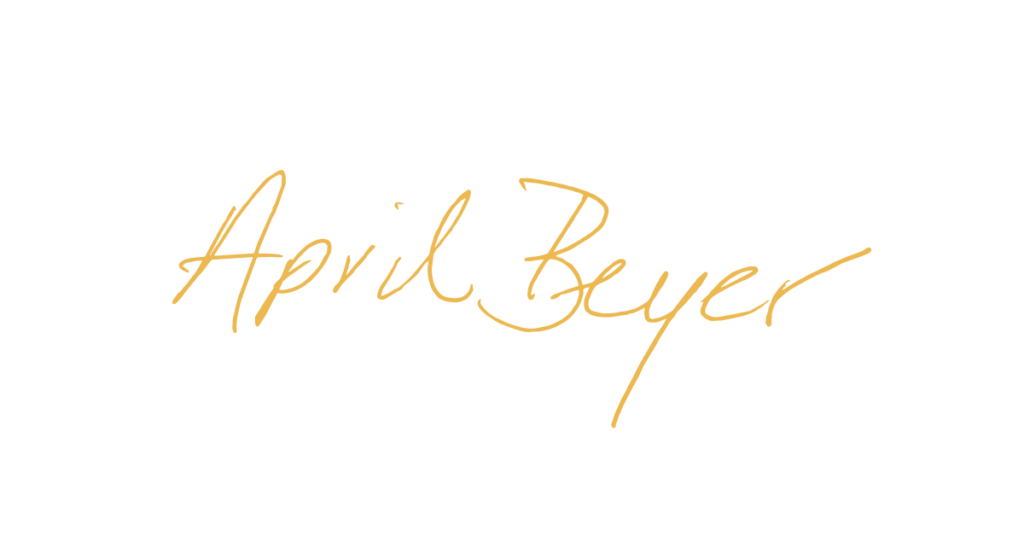To say I was a curious child is an understatement. At an early age, I had a very high level of emotional curiosity which led me to live and breathe learning everything I could, driving everyone crazy with questions about how and why things worked. I remember exploding with curiosity in my high school Chemistry class, but every time I raised my hand, my teacher told me I was asking too many questions. Having him shut me down in front of my peers for doing what came so naturally to me was incredibly embarrassing.
Curiosity, while free has its own reason for existing, as Albert Einstein once said. It is essential for comprehending and understanding the mysteries of life and reality.
Thankfully, I didn’t allow this to stop me. In fact, it fueled me and helped me become who I am today. My passion for unearthing the why behind the way things are inspired me to build a career in creating meaningful connections and improving emotional well-being.
Curiosity is a catalyst for connectivity.
As the years went on and I continued to embrace my curiosity, I discovered that the more layers you peel back, the more you learn. That knowledge is key to sparking purposeful connections, but it is not the whole answer. Being curious, present, expressing emotions and showing interest to others is one of the greatest opportunities for building meaningful relationships.
Unless, of course, you are a cat. In that case, please stay far away from curiosity. But for all you incredible humans building meaningful relationships, go ahead and unleash every ounce of curiosity using all your senses, your brains, and anything else that will help you understand and gain knowledge. It will enhance your life in extraordinary ways.
As a business owner, female motivational speaker, and matchmaker, I understand the positive effects this has on deepening relationships. And because authentic relationships are truly at the heart of everything we do, your awareness will ultimately lead to increased happiness and sustainable success.
the important thing is that by unearthing your desire for discovery, you can live a life filled with meaningful connections.
How a Lack of Expression of Curiosity Stands in the Way of Your Success

As the CEO of LEVELConnections, I focus on igniting sparks into flames that burn bright, casting a glow of love that warms hearts. Over the 25 years, I’ve spent in the matchmaking industry, I’ve encountered virtually every connection you can imagine and noticed that a lack of expression of curiosity can quickly extinguish that flame.
To be clear, a lack of the expression of curiosity doesn’t mean someone isn’t curious. It simply means they haven’t learned to articulate or express their curiosity about others.
Developing emotional intelligence can help individuals articulate and express their curiosity more effectively, leading to stronger connections and better workplace relationships.
Instead, we engage in small talk about safe topics rather than diving deep and allowing ourselves to become truly vulnerable. Many of us were raised to believe that asking questions is rude or too personal, so we stifle our natural curiosity. At work, we hold back out of fear of being inappropriate, and the impact of this is that we lose our humanity in the workplace. This suppression of curiosity can lead to increased anxiety and missed opportunities to build meaningful relationships and create authentic connections.
As a leader, you possess the power to cultivate a culture that strengthens relationships with colleagues in the workplace.
The Power of Curiosity: Lessons From My Personal Story
I remember rushing into my office one rainy morning, and as I was shaking the raindrops off my umbrella, I practically collided with my assistant. The rain outside was no match for the tears streaming down her face, and I immediately dropped everything to find out what was going on.
She shared that a client was furious with her about a situation he felt she overlooked. Recognizing how out of character that was for her, I immediately started an open and honest conversation with the client and discovered he was dealing with a difficult situation with his son amid handling massive stress at work. His feelings of being out of control had amplified the perceived slight by my assistant.
Once I was attuned to his vulnerability and authentic feelings, I recognized he simply needed more care and attention. I helped him recognize that his outburst of anger wouldn’t inspire the respect, thought and personal investment required to help him. I let him know that, in fact, not only did it put up a barrier to finding love, it left my assistant in tears. He was genuinely apologetic, and the next morning a bouquet of sunshine-yellow roses arrived for my assistant, brightening up her spirits and the rainy day.
Being present in the moment, and engaging curiosity, helps the brain in processing difficult feelings, aiding us in understanding and managing our feelings more effectively.
This experience taught me the importance of tapping into our vulnerability, even in the workplace. My client gained a deeper understanding of his emotions to correct in the moment, which nurtured the love connection we helped him spark later that same year.
When you encourage vulnerability in the workplace as a leader, it will do wonders for improving work relationships and building a culture of honesty and respect.
Building Bridges through Emotional Intelligence and Curiosity: 4 Strategies for Deepening Relationships with Colleagues in the Workplace
My ability to build both professional and personal relationships has improved my life and the lives of countless others. As a matchmaker, I am constantly reminded that this can be a catalyst for communication that deepens relationships. Being open to certain emotions without judgment can lead to deeper, more meaningful connections. The limbic system plays a crucial role in processing emotions and is connected to curiosity, which can activate the brain’s reward center, leading to creativity and innovation. When you make the choice to adopt this philosophy, it will inspire your team and amplify your leadership impact. Knowing how to do this won’t result in a loss of power or respect. In fact, expressing this level of curiosity inspires respect and creates a level of trust that builds successful teams.
I have curated a list of four strategies for developing more curiosity that have always served me and my clients, and I truly believe they will work for you, too.
1. Build a Cohesive Work Culture
I recognize that building a strong and cohesive work culture is a daunting task, but it’s not impossible. When you adopt a clearly defined strategy, are committed to change and your heart is in the right place, you can take your team to the next level. Establishing positive relationships among coworkers is crucial for fostering growth and achieving sustained success. A cohesive work culture is essential to maintaining healthy connections with your employees and ensuring they have strong relationships with colleagues in the workplace
The tool you need to build this strong foundation is emotional intelligence.
It always surprises me how often people hide the array of emotions we all experience every day. As a leader, when you encourage your team to explore and express their emotions and offer them a safe and supportive environment to do so, it will result in an authentic and open workplace culture.I recognize the importance of being appropriate with our curiosity at work as we don’t want to cross any boundaries. However, it’s important that we find ways to still feel human at work and not just machines without emotions.
Dive past the surface-level conversations by inspiring your team to improve work relationships. Initially, tapping into this skill may feel uncomfortable, but with practice, it will become second nature. When your team hones this natural ability, rather than suppressing it, they will be more attuned to coworkers’ reactions and cues, leading to questions based on what they see, not only what they hear. Unleashing this requires no more time but delivers much more value than simply asking, “How was your weekend?”

You may be wondering — why now? While most businesses may have been around for decades without focusing on this topic, that doesn’t mean it isn’t important.
The recent trend of the Great Resignation highlights the value modern employees place on relationships. Research has shown that when employees don’t feel connected, seen, heard, and understood, even increasing their compensation won’t keep them motivated and engaged.
In my career as a Matchmaker and Dating Coach, I developed a simple technique for increasing wonder awareness called “Dive For Gold” (™). This approach involves asking questions that hold genuine meaning to the person you are communicating with while paying close attention to their tone, body language, and facial expressions. The “dive” is the depth you’re willing to go while staying on one topic and the “gold” is what you find when you’re willing and able to reveal beautiful nuggets that help you to better understand someone. Demonstrating a sincere interest in others’ emotions and perspectives nurtures empathy and trust and improves communication in the workplace.
Infusing this into your workplace culture will take patience and dedication, but it will ultimately result in greater productivity, collaboration, and innovation. After all, we no longer want to just survive at work. Today’s employees want, and deserve, to thrive. Asking your employees to clock out of who they truly are in order to get the work done simply doesn’t inspire loyalty and longevity.
2. Show Your Vulnerability and Suspend Judgment
If you haven’t noticed already, it’s time to toss out the old rules of engagement and the outdated advice to compartmentalize your life. Today’s employees want to bring all of themselves to work. They deeply value openness, connection, empathy, understanding, and a sense of purpose. While all different things, they are all related and will each provide or detract from employee motivation and are critical for employees to adopt a growth mindset.
This begins with a leader who is willing to show their human side.
By being curious about your own emotional state, you can better understand and manage your feelings, setting a positive example for your team.
Even if it doesn’t come naturally, being authentically your whole self at work creates a powerful impact on your team. Giving them a glimpse into your struggles and weaknesses and sharing how you combat them will inspire your team to do the same.
The courage it takes to have awareness and be honest and transparent does come with the risk of judgment or rejection, but it is well worth the reward of deeper connections and more meaningful relationships. Articulating your vulnerability makes you incredibly relatable.
I’ve had the extraordinary honor of witnessing individuals strengthen relationships and spark new connections by letting their guard down and expressing themselves openly and honestly. This same type of transparency should be fostered at work.
However, it should be tempered a bit because oversharing at work isn’t appropriate. Your team doesn’t need to know exactly what happened, but your expression of how your experiences have impacted you is worth revealing. It helps you become more real to your employees. Don’t we all want to work and do business with real people? Of course, we do!
As a leader, when you embrace your own vulnerability, you will build deep connections and meaningful relationships with your team and motivate them to embark on a journey toward being their most authentic selves.
3. Find Balance in a World of Technology
In parallel with employees craving meaningful relationships with colleagues in the workplace, technology separates us from each other even more. While it has an important place in today’s world, technology can further remove us from what we all need most to feel happy and fulfilled — and that is human connection.
It can be challenging for leaders to focus on improving communication in the workplace when we rarely occupy a shared physical space. However, the most influential leaders find ways to put the time saved by technological efficiencies toward relationship-building efforts. The key is to strike a perfect balance between capitalizing on technology while still prioritizing emotion and human interaction.
Paying attention to physical sensations can help you stay connected to your emotions and improve your perspective in almost any situation. It will allow you to stop questioning everything you see, and develop your own understanding of the world around you.
Every individual is unique, and emotions are best observed in person. As a leader, ensuring your team spends time together in person is integral to nurturing active listening in the workplace and building stronger relationships. It’s impossible to be productive when people feel isolated and lonely. So, let’s find a way to not be lonely so we don’t leave the jobs we love!
Your sincere effort to create the ideal balance between technology and humans will ultimately lead to happier and more engaged employees, less workplace anxiety, and will help with employees feeling understood.
4. Measure the Success of Your Organizational Transformation
In my decades of experience as a relationship mentor and matchmaker, I’ve learned that communication truly is the key to any successful relationship. And since we also know that meaningful relationships are key to building any strong foundation in life, measuring the outcomes of change should include a pathway for employees to share their thoughts and feelings.
Implement regular check-ins, encourage employees to speak openly and honestly, where they feel comfortable expressing themselves, and deploy active listening in the workplace to measure the success of your relationship-building initiatives in real time. By tuning in to their emotions and needs, you can identify areas needing improvement and celebrate successes early and often. Encouraging this authentic feedback will organically foster a culture of positivity, productivity, and well-being. This positive culture will not only shine through internally but will also help attract high-quality candidates eager to work for such an insightful and empathetic leader.
As your team feels seen, heard, and understood they will start feeling more engaged and collaborative, less competitive with each other, and you will see a vast improvement in the quality of their work.
Maximize Your Success and Well-Being by Improving Work Relationships
The techniques I’ve shared are essential for most people. More than that, they are authentic and heartfelt. This is important because, when you lead with love, you simply can’t fail. And as their leader, you know your employees best, so it’s vital to add a personal touch to the strategies I’ve offered.
By being curious about your emotional world, you can better understand and navigate your feelings, leading to more meaningful relationships in life and at work.
Through my work as a CEO, business owner, and female keynote speaker, I recognize that there is often a multitude of obstacles standing in the way of creating a workplace culture of emotional curiosity. I’ve also learned that with perseverance and the willingness to invest time and resources, these obstacles can be overcome.
In my experience, by embracing relationship-building as a skill and an initiative in life, you will create a people-first environment that inspires your team and fosters trust, collaboration, and support.
Relatability is about understanding. Being able to understand and connect with others is fundamental to our humanity. After all, if we cannot embrace our humanity in the workplace, what purpose does it serve?
With your inspired leadership, you’ll build a productive culture that not only benefits your employees but will also offer you the opportunity to have the work-life balance that everyone strives for.
So go ahead and let your emotional curiosity run wild!






















